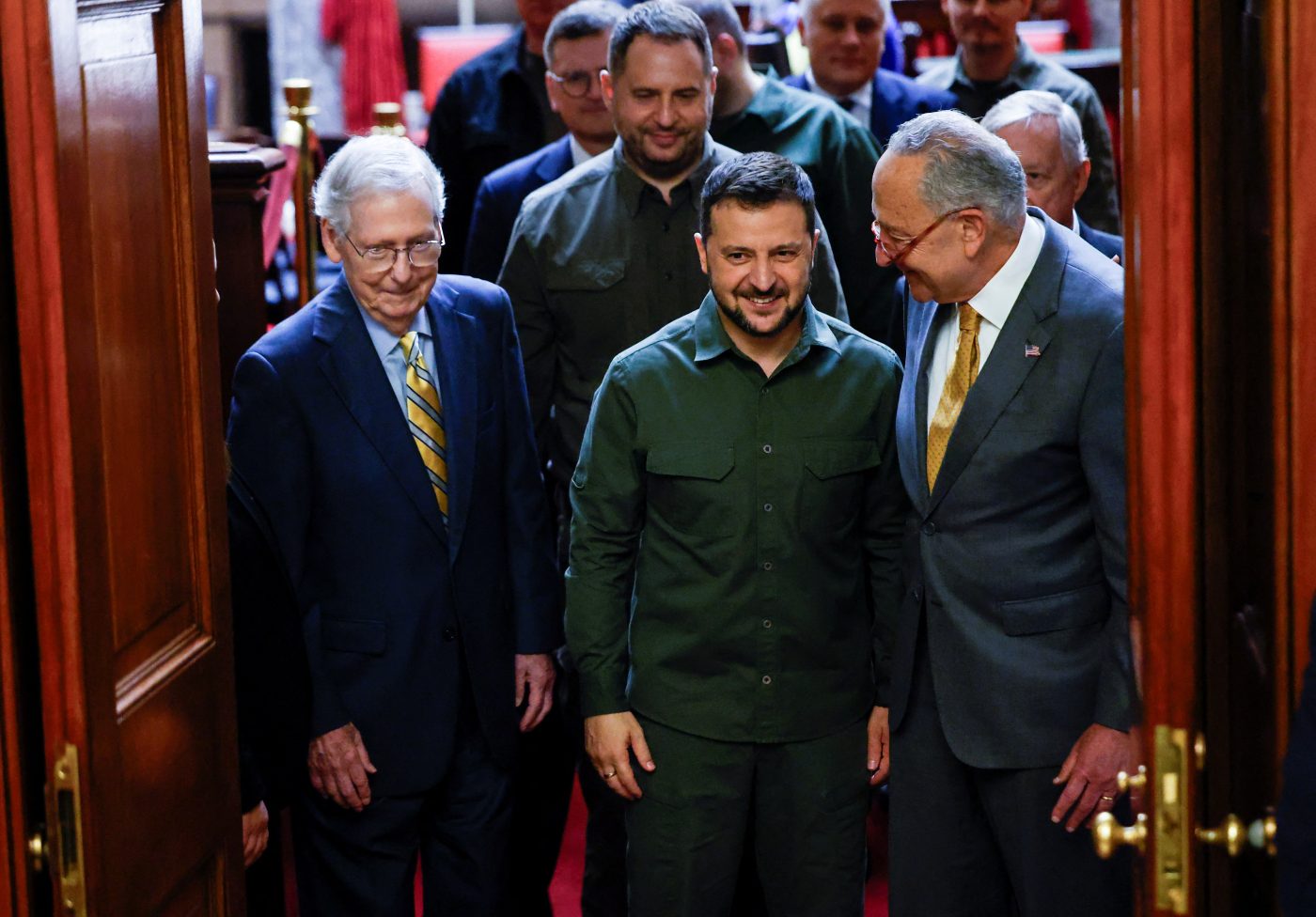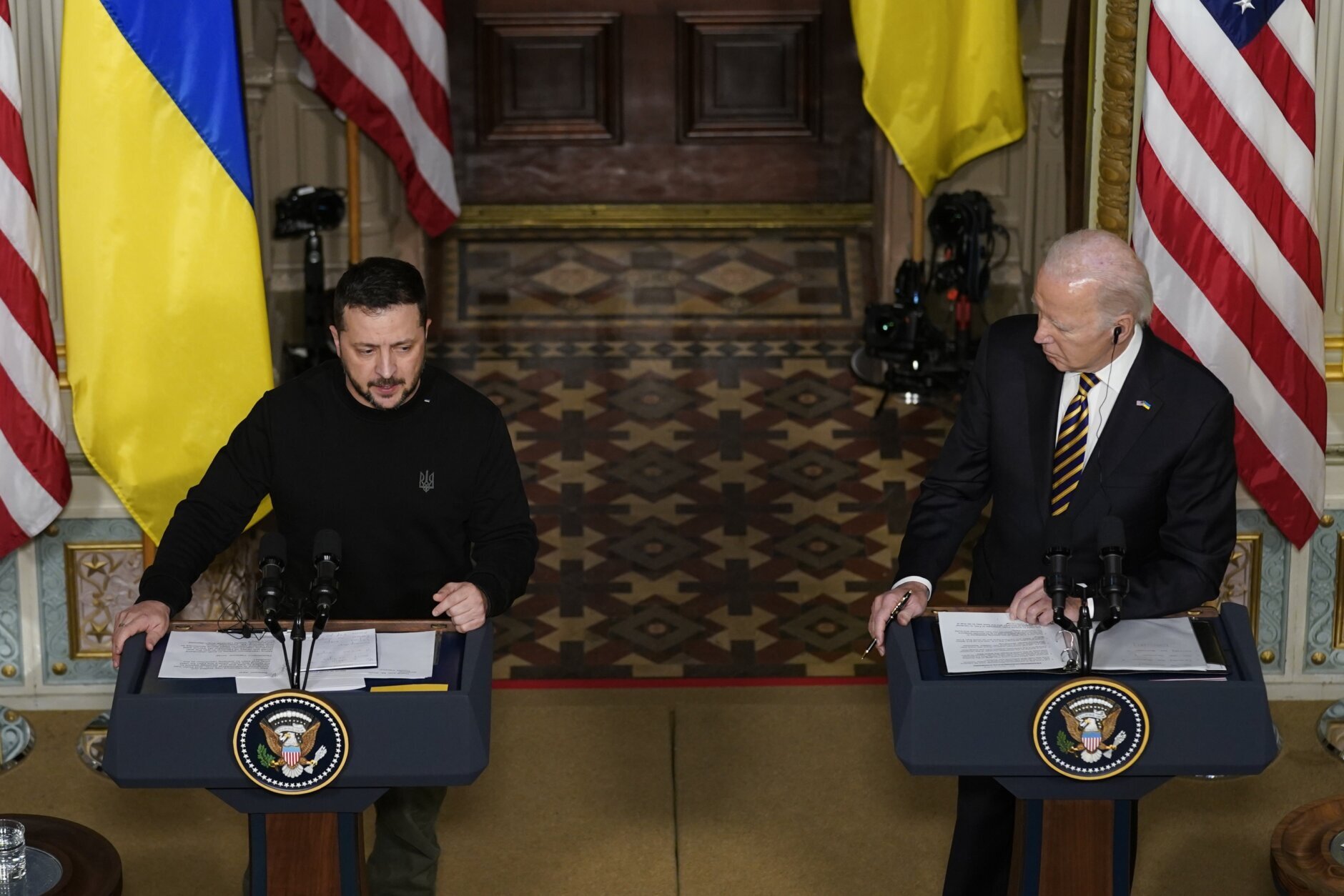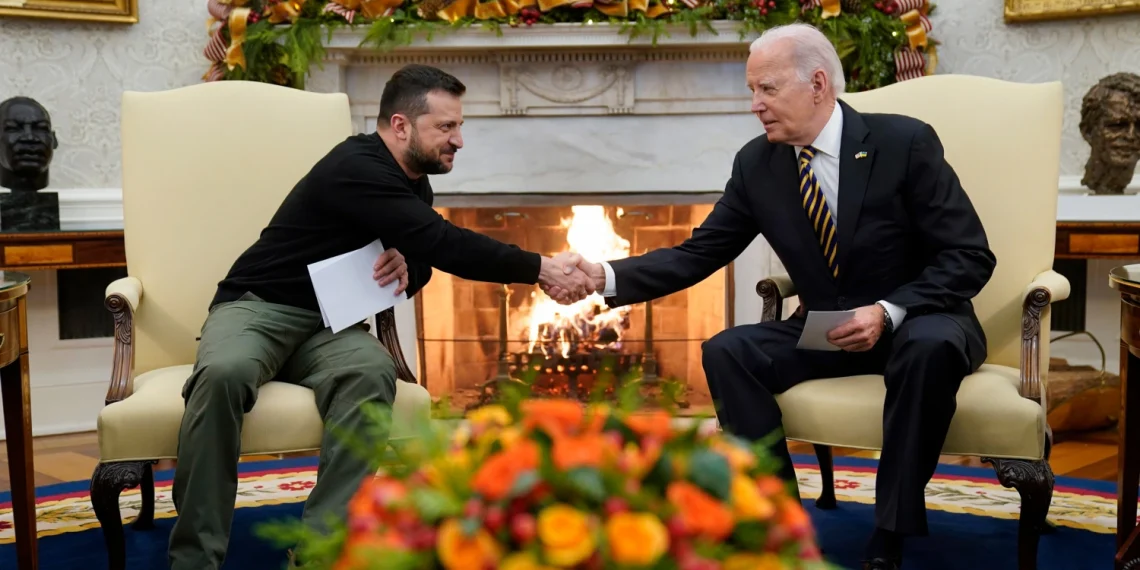During a visit to Kyiv, White House national security adviser Jake Sullivan reassured Ukraine of the imminent arrival of a significant aid package, stalled in Congress due to Republican opposition since late last year.
The delay adds pressure on Ukrainian forces grappling with a better-equipped and larger Russian adversary, two years into the full-scale invasion.
Sullivan, after meeting Ukrainian presidential chief of staff Andriy Yermak, expressed confidence in overcoming hurdles to deliver the aid, emphasizing bipartisan support. He dismissed the need for a “plan B,” affirming efforts to secure a strong bipartisan vote for the assistance package, highlighting the urgency of the situation.

While Sullivan didn’t provide a specific timeline for aid delivery, he stressed that the process had already been prolonged.
The ongoing conflict sees Russian troops occupying over a sixth of Ukraine’s territory, with renewed offensives despite Ukrainian countermeasures.
Challenges persist, including shortages of artillery rounds and manpower, raising concerns about defensive capabilities.
Discussions also revolved around upcoming events such as NATO’s summit in Washington and a peace summit in Switzerland, envisioned by Ukrainian President Volodymyr Zelenskiy. Notably, Ukraine plans to exclude Russia from the peace summit, aiming for a full withdrawal of Russian troops, a proposal Moscow rejects.

Yermak suggested that China, perceived as an ally of Russia with extensive economic ties, might participate in the summit.
China’s involvement would mark a significant diplomatic achievement for Ukraine, providing a glimmer of hope for broader international engagement in the peace process.
Amidst diplomatic maneuvers, the visit of China’s special representative to European capitals, including Kyiv and Moscow, fuels optimism about Chinese involvement. The dynamics of global alliances and geopolitical interests continue to shape Ukraine’s quest for peace and security.

















